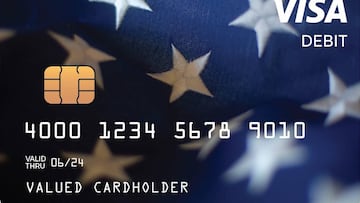Stimulus check: prepaid debit card rates, privacy conditions and requirements
Prepaid debit cards were used as a method to pay those who didn't have their bank details on the IRS files, but things have been far from plain sailing.

We told you before about the prepaid debit cards that were being used as one of the methods to make payments to Americans following the CARES Act. Around four million individuals received the cards which were to aid them through the financial difficulties that arose from the coronavirus pandemic, but it seems that there are further complications with those using them.
Problems with prepaid stimulus check cards
The reason the cards, managed by Money Network Financial and issued by MetaBank, were introduced in the first place was to reach those people that did not have their banking details stored with the Inland Revenue Service (IRS). The method of payment for those that did have banking information in place was via direct deposit. The beauty of this was its simplicity, speed and because it cost nothing.
The prepaid cards were a little more complicated.
A letter issued this week to Charles Rettig, the IRS boss, and Steven Mnuchin, the Treasury Secretary, from New Hampshire Senator, Maggie Hassan, along with 14 other senators pointed out the concerns. These included card fees and the need to share personal information with third parties.
Fees and personal data
The debit cards included a withdrawal fee of $2 if using an out-of-network ATM. There was also a $5 fee for taking cash out over the counter at a bank and trying to use the online transfer system was overly complicated for many.
Related stories
Regarding the data, those people who received the cards had to provide significant information to activate them or even transfer money using them. This was then allowed to be shared with third parties based on the agreement.
These issues are on the back of various others that have dogged the planned roll out. There was confusion over the envelopes that were used. The delivery of them took a considerable amount of time - when many people really needed the funds - and it was difficult to get clear and concise information from the IRS website. It didn’t help that it was impossible initially to get someone from the IRS on the phone, something they did eventually resolve, to some degree.

